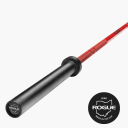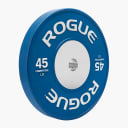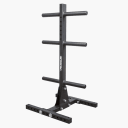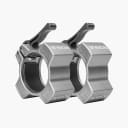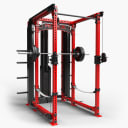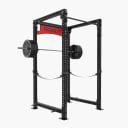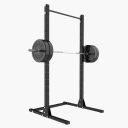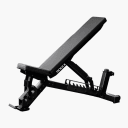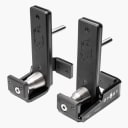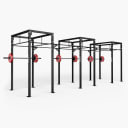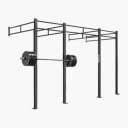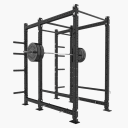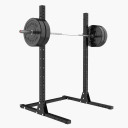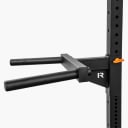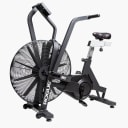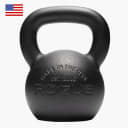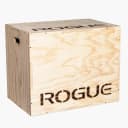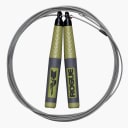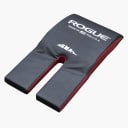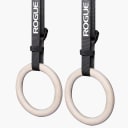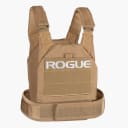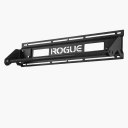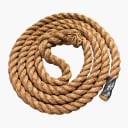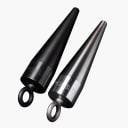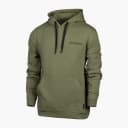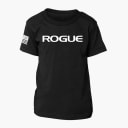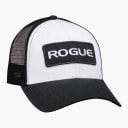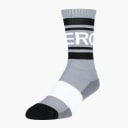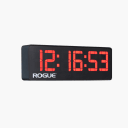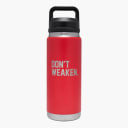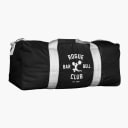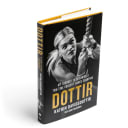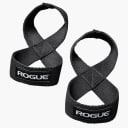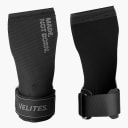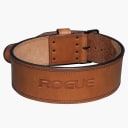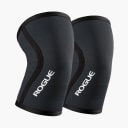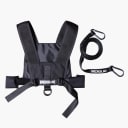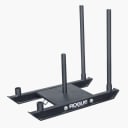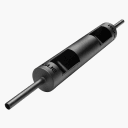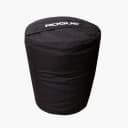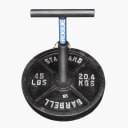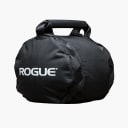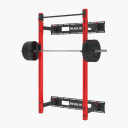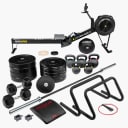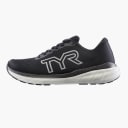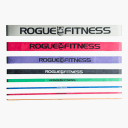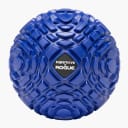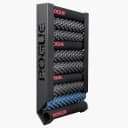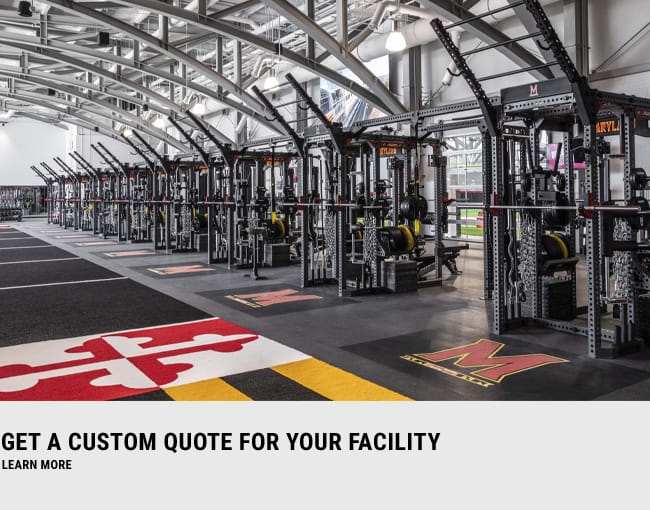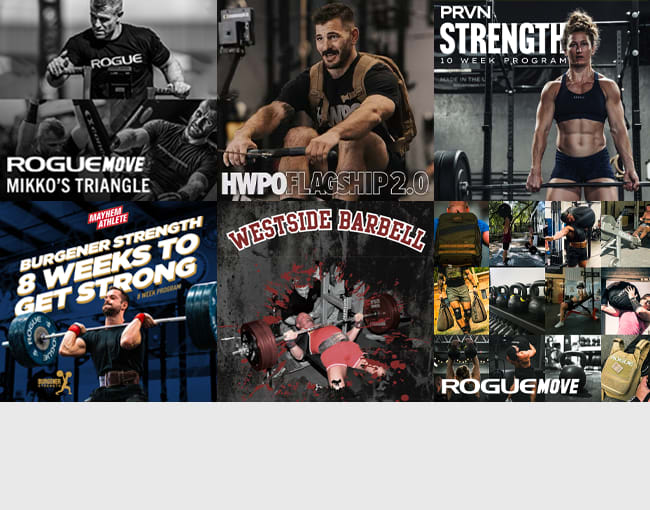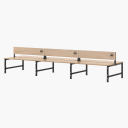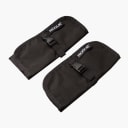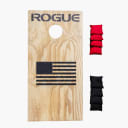
THE MULE CHALLENGE
JUNE 25 - JUNE 29
Introducing the Mule Challenge. Speed and Strength.
See info below for official standards and to register. A $10 entry fee gets you into the competition; $30 gets you entry + an official Rogue Challenge t-shirt. Once you’ve completed your challenge attempt, submit your time and video evidence using the instructions in the Beyond the White Board app. Also be sure to use #ryourogue and tag @roguefitness to share your experience!
PRIZE PACKAGES
RX Male Winner
| 1st Place | $2500 + Ohio Power Bar |
| 2nd Place | $1000 + Ohio Power Bar |
| 3rd Place | $500 + Ohio Power Bar |
RX Female Winner
| 1st Place | $2500 + Ohio Power Bar |
| 2nd Place | $1000 + Ohio Power Bar |
| 3rd Place | $500 + Ohio Power Bar |
TOP 3 GYMS WITH SIGN-UPS
Total entries per gym
| 1st Place | Ohio Power Bar |
| 2nd Place | Ohio Power Bar |
| 3rd Place | Ohio Power Bar |
THE MULE
INTRODUCING THE MULE. STRENGTH AND SPEED.
CHALLENGE AND SCORING
Complete the following as fast as possible:
21-15-9 Reps for Time
Deadlifts
Chest to bar pull-ups
RX Division Weight
Men - 315LBS (143 KG)
Women - 225LBS (102 KG)
Scaled Weight
Men - 225LBS (102 KG)
Women - 155LBS (70 KG)
Time Cap: 10 minutes
Athletes with the fastest time in each category will win the contest.
Tie breaker: Time to complete the first round of 21 deadlifts and 21 chest to bar pull-ups. Quickest time wins.
DEADLINES AND SUBMISSIONS
Challenge Start Date & Time: June 25 at 9 AM Eastern Time
Challenge Close Date & Time: June 28 at 8 PM Eastern Time
*Scores cannot be updated or added to the leaderboard following the competition close date and time. Please allow sufficient time for completing and submitting your score and video in advance
ELIGIBILITY STANDARDS AND AGE GROUPS
RX Division
Men - ages 14 and over
Women - ages 14 and over
Scaled Division
Men - ages 14 and over
Women - ages 14 and over
To be considered as a competitor, the athlete must register for the challenge at www.roguefitness.com/challenges and follow all workout and video flows as outlined.
EQUIPMENT NEEDED TO QUALIFY
- Visible timer in frame - this can be a gym timer, a phone with the timer feature up, or a stopwatch
- Digital weight scale to confirm the weights to be used for the deadlift
- Tape measure to be used to verify the distance from the barbell to the pull-up bar (5 Feet)
- Standard 15kg (35LB) or 20kg (45LB) Barbell
- Weight plates with the weight clearly marked - max of 18" diameter
- Barbell collars
- Pull-up bar that allows the athlete to hang freely from the bar without touching the ground
- Recommended: 10' x 10' clear unobstructed area in which to lift and do pull-ups with no other equipment in the space
- Rogue brand gear is not required
PERMITTED EQUIPMENT
- Gym chalk (magnesium carbonate)
- Weightlifting belt
- Knee/elbow sleeves (single or pairs)
- Wrist supports/wraps
- Shoes in any style must be worn
- Gymnastic grips
NOT PERMITTED EQUIPMENT
- Tacky of any kind
- Any type of liquid grip
- Gloves or and kind of forearm or bicep coverings
- Sticky adhesives or grip adhesives of any kind anywhere on the clothing, body, or bar (including spray or other)
- Multiple layers of sleeves/wraps on top of each other
- Lifting straps of any kind
- Knee and elbow wraps
- Tape or any other material added to the pull-up bar
MOVEMENT STANDARDS
An approved workout will consist of the following movements:DeadliftBarbell begins on the floor.
- This is a traditional deadlift with the hands outside of the knees (Sumo Deadlift is not permitted).
- Any style of grip is allowed.
- The bar is lifted to the finishing position where the hips and knees are fully extended with the head and shoulders behind the bar.
- Once the athlete reaches the required finishing position they will continue completing the required number of repetitions.
- The arms must remain straight throughout each repetition of the lift, with no bouncing of the barbell.
Chest To Bar Pull-Up (RX Division)
This movement begins with the athlete hanging freely from the bar with fully extended arms and shoulders:
- The athlete must raise their body to the bar so that the bar clearly touches the chest below the collar bone.
- After touching the chest to the bar, the athlete lowers their body until they once again reach full extension of the arms and shoulders and are hanging freely from the bar.
- Any style of grip on the bar is permitted.
- Strict, gymnastic kipping, or butterfly chest to bar pull-ups are all permitted.
Pull-Up (Scaled Division)
This movement begins with the athlete hanging freely from the bar with fully extended arms and shoulders:
- The athlete must raise their body to the bar so that the chin is clearly over the bar.
- After the chin clears the bar, the athlete lowers their body until they once again reach full extension of the arms and shoulders and are hanging freely from the bar.
- Any style of grip on the bar is permitted.
- Strict, gymnastic kipping or butterfly pull-ups are all permitted.
See The Mule instructional video above for a visual example of the prescribed movements.
Any athlete who alters/modifies the equipment or movements described in this document or shown in the video standards may be disqualified from the competition if deemed by the head judges to give an unfair advantage.
FLOW
The workout begins with the athlete standing at full extension with the deadlift bar in front of them.
- Body and bar should be behind the 5' line and facing the pull-up bar. (See schematic included in the PDF)
With a verbal countdown of "3, 2, 1 Go," the athlete may reach down and begin the workout:
- The clock should begin on "go"
- The athlete will complete 21 repetitions of the deadlift
- Standards listed above.
When the athlete completes the 21 deadlift repetitions, they will step over the barbell and move to the pull-up station.
- Standards listed above.
When the athlete reaches the pull-up station they will complete 21 chest to bar pull-ups.
- Standards listed above.
When the athlete completes 21 repetitions of the chest to bar pull-up, they will go back to the barbell, step over and face the pull-up bar.
- Standards listed above.
When the athlete completes 15 deadlift repetitions, they will step over the barbell and move to the pull-up station.
- Standards listed above.
When the athlete completes 15 chest to bar pull-ups, they will go back to the barbell, step over and face the pull-up bar.
- Standards listed above.
When the athlete completes 9 deadlift repetitions, they will step over the barbell and move to the pull-up station.
- Standards listed above.
When the athlete completes 9 chest to bar pull-ups, their challenge is over.
- The timer can be stopped after the chest touches the bar on the final repetition of 9 chest to bar pull-ups.
- Standards listed above.
Note: If the athlete does not complete all the required work during the 10 minute time cap, the score will be the total number of completed repetitions at the time cap.
VIDEO SUBMISSION STANDARDS
All video submissions should be uncut and unedited in order to accurately display the performance. Videos shot with a fisheye lens or similar lens may be rejected due to the visual distortion these lenses cause. Sound should be ON during the filming. Be sure the athlete has adequate space to safely complete the movements and clear the area of all extra equipment, people, or other obstructions so that the video is clear.
The video should be shot from at a 90 degree angle to the athlete ensuring that the video clearly shows the entire body. Critical items that need to be clearly visible on the video:
- Full body of athlete including feet at all times during each movement of the workout.
- Clearly show the chest touching the pull-up bar.
Next the athlete will need to follow the steps outlined below:
- The submitted video should start with the entire athlete in frame stating their name, the challenge name, and their category.
- The athlete needs to show the camera all supportive equipment they are wearing or will wear for the challenge to confirm it all matches the rules outlined.
- The camera should then clearly show all equipment the athlete will use during their challenge. All of the following must be shown:
- Barbell, to include end caps.
- All weight plates; total weight should match the criteria for the category the athlete has entered.
- Plates need to clearly have the weights printed on them.
- The pull up bar - clearly show there is no tape, tacky or any banned substance on the bar.
- The 5ft tape line measurement from the barbell to under the pull up bar.
- The athlete should hang from the bar to show they can hang freely with no risk of touching the floor.
- All gear needs to stay in camera shot during the entire video.
- The athlete must weigh all plates and barbell on camera, as shown in the challenge demo video.
- Camera must show each plate on the scale and the scale reading.
- Camera must show the barbell on the scale and the scale reading.
- Required regardless of equipment brand.
- The camera should move back into the correct 90 degree filming angle for the challenge attempt.
- The bar should be loaded at this time.
- The final position should capture the athlete at 90 degree for the deadlift and be able to clearly show the chest touching the bar for the pull-ups as well as the timer.
- Once the athlete is ready they may begin the workout based on the criteria outlined above.
- When the athlete finishes their last pull-up rep, the video may conclude.
- All of the steps above should be done with the camera continuously running for the video to be accepted.
- Failure to show these steps/items could make the video submission subject to rejection at the judges' discretion.
- Refer to the demo video on the Rogue website for a visual for how the workout and video should flow.
